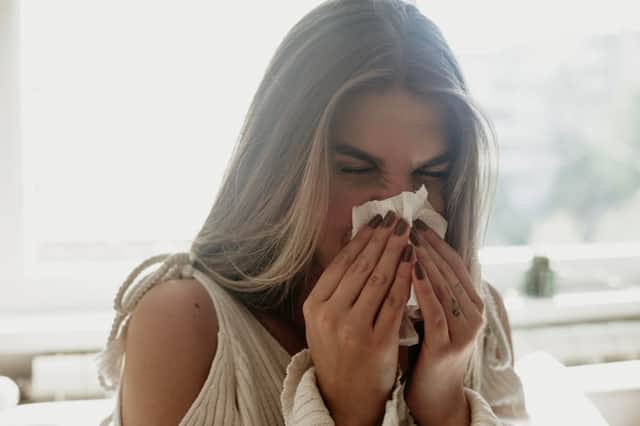This is when hay fever season starts in the UK - and how to treat symptoms


Hay fever season affects many people throughout the UK every year, with high pollen counts causing watery eyes, runny noses and itchy throats.
But when does hay fever usually start, what are the types of pollen and how can symptoms be treated?
Here’s what you need to know.
Advertisement
Hide AdAdvertisement
Hide AdWhen does hay fever season start?
Hay fever is an allergic reaction to pollen and usually occurs when it comes into contact with your mouth, nose, eyes and throat. Hay fever season typically starts at the end of March until the end of September, with various pollen stirring allergies at different times throughout the summer.
Tree pollen occurs first, typically from late March to mid-May. Grass pollen then usually lasts from mid-May until July, with weed pollen covering the end of June to September.
However, the Met Office explains that depending on where you live in the UK, the hay fever season will start at different times.
“For example, there’s a later start and shorter season in the north of the UK, where generally there is less pollen,” said the Met Office.
Advertisement
Hide AdAdvertisement
Hide AdUrban areas tend to have lower counts than the countryside, and places inland have higher counts than around the coast.
Grass pollen also has two peaks, with the first usually starting in the first two weeks of June and then the second, lower peak occurring in the first two weeks of July, after which things tail off slowly.
These peaks may be masked by how wet, dry, warm or cold it is, and the timing of the peaks also depends on the weather conditions during spring and early summer.
Pollen is also dependent on how “hardy different species are and how well they cope with a mixture of different types in one region,” added the Met Office.
What are the symptoms of hay fever?
According to the NHS symptoms of hay fever include:
- sneezing and coughing
- a runny or blocked nose
- itchy, red or watery eyes
- itchy throat, mouth, nose and ears
- loss of smell
- pain around your temples and forehead
- headache
- earache
- feeling tired
If you have asthma, you might also: